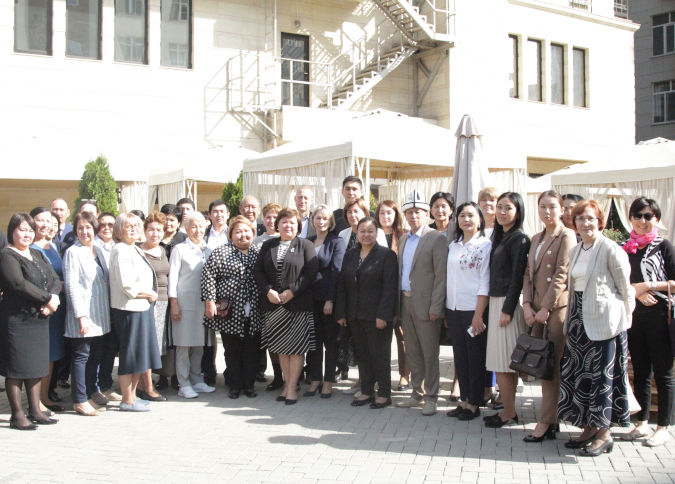Where does Kyrgyzstan stand on gender statistics
Date:

On 25 September 2019, the National Statistical Committee, line ministries, civil society activists and academics in Kyrgyzstan joined a new assessment exercise launched by UN Women and Partnership in Statistics for Development in the 21st Century (PARIS 21) to identify challenges of planning, producing and using gender data that can show the differences in the lived experiences of women and men.
More than 37 people attended a workshop in Bishkek that kicked off the Gender Assessment of National Statistical System, which is intended to analyze the national statistical capacity, coordination mechanism, production and use of data by the government, civil society and academia. The result of the assessment is expected to feed into the development of a new statistical strategy of Kyrgyzstan.
Johannes Jütting, the Executive Head of the Partnership in Statistics for Development in the 21st Century (PARIS 21) said: “Gender equality is part of national policies. But it should be part of statistical planning, too. That’s why, PARIS21 and UN Women will support the integration of gender to ensure not only the production, but also access and use of data.”
“Now, the need to produce more and better gender data is greater than ever. Otherwise, our ability to monitor the SDGs and track progress for women and girls across all goals and targets will be compromised,” said Ulziisuren Jamsran, Representative of UN Women Country Office.
Gender data is crucial for monitoring gender inequality and developing evidence-based solutions. In Kyrgyzstan, only around half of nationally defined gender indicators are available to monitor the Sustainable Development Goals.
“To address issues such gender-based violence requires more and better data to inform evidence-based programming. Availability of data will help us understand the nature and magnitude of the issue,” said Larisa Ilibesova, a researcher at a non-governmental organization, Center of Democratic Processes Studies.
The workshop will be followed by consultation meetings with the representatives from civil society organizations, the academia and media, where they exchange their views with the government officials and international organizations on what can be done to improve the collection, use, dissemination and visualization of gender statistics.
The new framework used in the gender assessment was developed as part of UN Women's “Making Every Woman and Girl Count (Women Count)” programme in collaboration with PARIS 21, a consortium tasked with promoting the better use and production of statistics throughout the developing world.
Through the “Women Count” programme, UN Women in Europe and Central Asia offers technical and financial support to countries to improve the production and use of gender statistics to better monitor the implementation of gender equality commitments in the 2030 Agenda.